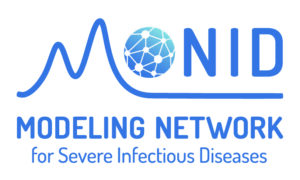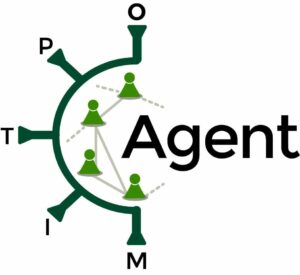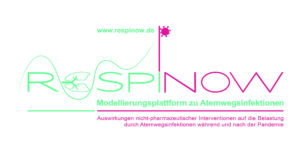PROJECTS
eCare-22q11
Evaluating Parent Perceptions, Economic Burden, and the Impact of Online Coaching Interventions for Parents of Children Diagnosed with the 22q11 Deletion Syndrome
Project Lead: Jun.-Prof. Dr. Alexander Kuhlmann
Project Duration: 06/2022-05/2025
Funding: Federal Ministry of Education and Research
Partners:
- Dalhousie University (Halifax, Canada)
- University of Basel (Basel, Schweiz)
- Hospital for Sick Children (Toronto, Canada)
Summary:
22q11.2 deletion syndrome (22q11DS) is the most common microdeletion syndrome in humans, with an incidence of 1 in 4,000 live births. The health problems associated with 22q11DS (e.g., cardiac defects, immunodeficiencies, intellectual disability, neuropsychiatric disorders) have a significant impact on the psychosocial well-being of patients and their families and impose substantial socioeconomic costs.
Using a multidisciplinary approach, the project aims to assess the socioeconomic burden of families with a child diagnosed with 22q11DS and evaluate the potential of an easily accessible online coaching intervention to reduce this burden for families.
To this end, an online survey will first be conducted with 500 parents of children with 22q11DS aged 3-15 years on psychosocial well-being, quality of life, and costs associated with 22q11DS. More detailed information on burden, stigma, and access to care will be collected through qualitative interviews with 40 of the parents. From the total cohort, 200 parents will be included in a randomized controlled trial to measure the effectiveness of the online coaching intervention.
A health economic model will be developed to analyze cost-effectiveness.
Opti-LuCaS
Optimizing the Value and Efficiency of Lung Cancer Screening in Germany
Project Lead: Jun.-Prof. Dr. Alexander Kuhlmann
Project Duration: 09/2021-08/2024
Funding: Medical Faculty of Martin Luther University – Wilhelm Roux Program
Partners:
- Hannover Medical School
- University Medical Center Schleswig-Holstein (Campus Lübeck)
- LungClinic Großhansdorf
Summary:
Randomized trials in the USA and Europe have convincingly shown reduced lung cancer (LC) mortality upon low-dose computed tomography (LDCT) screening. However, evidence of LDCT screening effectiveness in reducing all-cause mortality is not conclusive.
To ensure that the benefits (reduction of all-cause mortality, gain in life years) outweigh the potential harms (false-positives, overdiagnosis, increased resource use), it is crucial to realise the full potential of lung cancer screening.
This study aims to evaluate the long-term performance and cost-effectiveness of LC screening programs with LDCT in a population based setting. The analysis focuses on eligibility criteria, nodule management protocols, diagnostic thresholds of imaging biomarkers for chronic obstructive pulmonary disease (COPD) and coronary artery disease (CAD), and the effects of implementing smoking cessation programs within lung cancer screening.
A secondary objective of the study is the development of models for the health economic evaluation of LC and COPD treatment. Different simulation tools will be developed and integrated in a comprehensive LC screening microsimulation platform.
The platform can also be used for economic assessments of innovative treatment approaches and novel therapy biomarkers.
MONID
Coordination office for the Modeling Network for Severe Infectious Diseases
Project Lead: Jun.-Prof. Dr. Alexander Kuhlmann, Prof. Dr. med. Rafael Mikolajczyk
Project Duration: 05/2022-04/2025
Funding: Federal Ministry of Education and Research (BMBF)
Summary:
With the BMBF funding measure “Strengthening modeling competence for the spread of severe infectious diseases” (hereinafter: the modeling network), six interdisciplinary research networks at universities and non-university institutions are being funded for population-based modeling of the infection incidence of transmissible pathogens.
The objective is to structurally strengthen the competence in Germany in this field of research by networking the scientists working in modeling with one another as well as through scientific exchange and interdisciplinary cooperation with the surrounding relevant disciplines.
The coordination office of the modeling network is to coordinate the work of the funded research networks and support them on different levels: harmonization of methods, establishment of joint control and organizational structures, development and maintenance of internal and external communication channels, implementation of cross-network activities, development of collaborative teaching programs for the structured training of young modelers in Germany.
The coordinating office combines an interdisciplinary team (including infectious disease epidemiology, health economics, data science and informatics, project management) with many years of experience in multicenter national and international modeling projects from three institutions of the Medical Faculty of Martin Luther University Halle Wittenberg:
- Junior Research Group Health Economics/ Public Health Research,
- Institute for Medical Epidemiology, Biometry and Informatics,
- Junior Research Group Biomedical Data Science.

OptimAgent
Optimal control of the epidemic under heterogeneity conditions – decision making perspective on agent based modelling
Project Lead: Prof. Dr. med. Rafael Mikolajczyk
Project Duration: 05/2022-04/2025
Funding: Federal Ministry of Education and Research
Partners:
- University Münster
- Helmholtz-Centre for Infection Research
- University of Kaiserslautern-Landau,
- Freie Universität Berlin
- University Trier
- Bielefeld University
- University Leipzig
- University of Lübeck
- University Medical Center Utrecht
- Wroclaw University of Science and Technology
- UMIT Tirol – Private University for Health Sciences and Health Technology
- NET CHECK
Kurzbeschreibung:
The SARS-CoV-2 pandemic presented an unprecedented challenge to societies and put a substantial strain on political decision making.
OptimAgent aims to develop a unified framework for public health decision making allowing for the evaluation of a broad spectrum of non-pharmaceutical interventions (NPIs) for the prevention of severe respiratory infections.
A central component of the consortium is the development of an agent-based model (ABM) which will reflect the sociodemographic regional structures in Germany. Agents will have demographic, sociological, socioeconomic and psychological characteristics, which determine the individual contact behavior, infection risk and the risk of severe disease outcomes.
Social inequality dynamics will also be depicted. OptimAgent will focus on various aspects of heterogeneity in the population to gain new insights with respect to which levels of heterogeneity require specific attention for future pandemic preparedness.

RESPINOW
Effects of non-pharmaceutical interventions on intra- and post-pandemic burden of respiratory infections
Project Lead:
- Helmholtz Centre for Infection Research:
- Dr. Berit Lange
- University Halle-Wittenberg:
- Jun.-Prof. Dr. Alexander Kuhlmann (subproject 3 + 4),
- Prof. Dr. med. Rafael Mikolajczyk (subproject 1 + 3) and
- Dr. Cornelia Gottschick (subproject1)
Project Duration: 05/2022-04/2025
Funding: Bundesministerium für Bildung und Forschung (BMBF)
Partners:
- Helmholtz Centre for Infection Research
- Heidelberg University
- Max Planck Institute for Dynamics and Self-Organization Göttingen
- Karlsruhe Institute of Technology
- University of Tübingen
- University of Cologne
- University Münster
- University of Kaiserslautern-Landau
- Robert Koch Institute
- Stockholm University
- University of Munich
Summary:
There is now increased understanding of the variability of effectiveness of non-pharmaceutical interventions (NPIs) in reducing SARS-CoV-2 over regions, social parameters and phases of the pandemic.
However, the mid- and longterm effects of NPIs remain poorly understood. Studies show that respiratory infections by RSV, influenza and pneumococci – responsible for a substantial global disease burden – have decreased during 2020 as a collateral effect of the implemented NPIs.
Simultaneously, this led to reduced naturally acquired immunity projecting higher than usual surges of these infections mid- and long term – collateral effects not included in current simulation models.
The aim is to develop an integrated model for simulation of transmission of several respiratory infections and collateral effects of NPIs on their disease burden in the mid- and long term. Second, simulations on infections and hospitalizations from RSV, influenza and pneumococcal disease will be integrated into existing forecast platforms for SARS-CoV-2 to provide a precise picture of near-future use of health care systems.
In Subproject 1, the Martin Luther University Halle-Wittenberg will provide data on the transmission of infectious diseases in households and data on the effect of NPIs on respiratory infections in small children. The data will be analyzed and homogenized with global data. The effect of NPIs is examined on the basis of this data.
In addition, in Subproject 3, the Martin Luther University Halle-Wittenberg will investigate the impact of NPIs on the dynamics of pneumococcal infections (both in terms of incidence and serotype distribution) using a dynamic model.
The results/methods will be incorporated into both the integrated model and the forcasting platform.

RESTART 3.0
Risk prEdiction of indoor SporTs And cultuRe events for the Transmission of COVID-19
Project Lead: Dr. Stefan Moritz
Summary:
In the third part of the Restart studies, the impact of large events on a pandemic event caused by a respiratory virus will be investigated in a more global context.
After Restart-19 initially answered basic infection epidemiological questions about large events, Restart 2.0 focused primarily on indoor air quality and transmission by aerosols. With Restart 3.0, the data from both predecessor studies are now to be combined and any gaps in knowledge that still exist are to be closed. In particular, data on standing concerts and outdoor events will be collected. Especially the latter have to be taken into account due to their often huge number of visitors.
Based on this, improved epidemiological modeling will be developed that takes into consideration both the new virus variants and the changing immunity in the population as well as the structural, geographical and seasonal heterogeneity of large-scale events in Germany.
This should enable more accurate statements about the effectiveness of the different containment measures.
MODELIGEV
Modeling of the SARS-CoV-2 infection event to secure and optimize health care in the model region Halle/Saale
Project Lead: Prof. Michael Gekle, in collaboration with Prof. Dr. med. Rafael Mikolajczyk
Project Duration: 01/2023 – 12/2025
Funding: Federal Ministry of Education and Research
Partners:
- TWT GmbH
- AOK Saxony-Anhalt (associated)
- Medical Association Saxony-Anhalt (associated)
Summary:
A digital twin for the model region is being set up to support decision-making on measures to contain outbreaks of infection and ensure basic medical care. This contains all relevant data and assumptions, so that infection events inside and outside the healthcare system can be simulated.
The metamodel to be implemented in the project is to be adapted to other regions at a later stage.
The primary end users are decision-makers in the healthcare system.
TwinS (EXIST)
Funding: The EXIST start-up grant is a funding programme of the Federal Ministry for Economic Affairs and Energy and is co-financed by the European Social Fund (ESF).
Summary:
The start-up initiative “TwinS”, which is funded as part of the EXIST programme, is an interdisciplinary team which, in collaboration with the Institute of Medical Epidemiology, Biometry and Informatics, aims to create the basic building blocks for an entrepreneurial spin-off. The team is primarily concerned with the creation of so-called “digital twins”, i.e. detailed digital replicas of real cities and regions and their populations.
With the help of big data, machine learning and artificial intelligence, extreme cases such as pandemics and natural catastrophes are to be simulated. During the COVID-19 pandemic, it became clear that regional measures are necessary in order to act efficiently. The creation of digital twins allows, among other things, better tracking of infections and more targeted detection of centres of infection. Healthcare can also be improved by optimising healthcare infrastructure and emergency routes. Political decision-makers benefit from regional analyses and recommendations, can act more efficiently in economic terms and maximise the health of their population.
